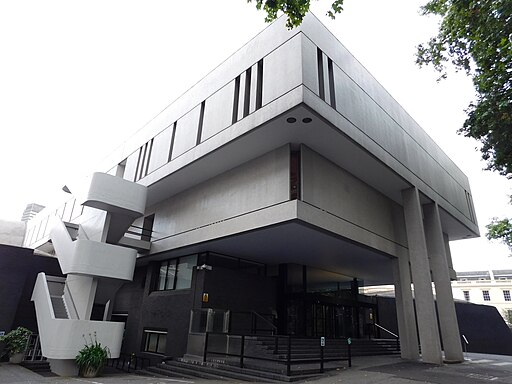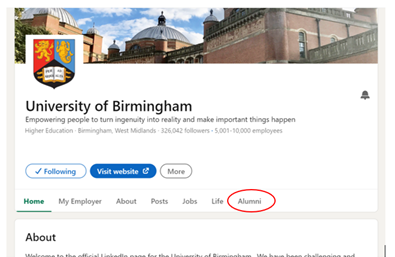In this post, Olivia Langford, a PGR in the Shakespeare Institute, shares her experience of a placement with the Royal College of Physicians, the ways it has enriched her research and CV, and her tips for other PGRs considering a placement.
As a PhD student belonging to the College of Arts and Law, opportunities to work with non-academic institutions are perhaps more limited than other disciplines. However, wanting to gain valuable and real-life work experience, increase my range of skills in a field I would like to enter post-PhD, increase my networking connections, and, let’s face it, escape the bubble of academia for a little while made me want to pursue a placement.

Image credit: Paul the Archivist, CC BY-SA 4.0, via Wikimedia Commons
I was lucky enough to carry out my placement with the support of AHRC Midlands4Cities, who as well as funding my travel expenses, actively encourage and facilitate placement opportunities for all their students. Whilst M4C have a number of placement partners, I wanted to identify my dream institution to work with who I felt could aid my project and who I felt I could benefit during my placement. After visiting them for archival research, I chose the Royal College of Physicians (RCP) in London and based my project around analysing their collection of recipe books from c.1580 – 1660, considering the recipes relating to maternity. This was closely tied to my thesis research, which considers non-English motherhood in William Shakespeare’s plays. The RCP were very accommodating from the outset and helped me to not only put together a feasible project, with mainly remote working involved, but also one that had a suitable timescale as the placement would involve a more relaxed approach to my thesis development. Not every institution will have the staff, time and funding to enable this to happen, however, so it is worth getting in contact with them initially to see if the organisation will suit your individual requirements.
It is important to identify what you hope to gain from the placement, both in relation to your project, and additional skills that the placement organisation may offer you. Before my placement started, I agreed with my primary contact at the RCP that I would publish a blog post on their website, aimed at the general public. This improved my writing capabilities, as I gained experience of being able to produce content for a non-academic audience. I also outlined that I would aim to write an article on my project findings, which the RCP were happy to support. The RCP provided special collections handling, such as knowing how to work with rare and delicate manuscripts whilst I was on-site, and this has really improved my experience when considering heritage jobs post-PhD. I gained skills whilst carrying out the placement itself, such as developing my palaeography skills whilst transcribing the early modern recipe books, which has expanded the scope of my thesis research. It is worth considering how you could use your placement research to improve your public impact and engagement – for example, I presented my placement findings at the 2023 Fertility, Folklore and the Reproductive Body conference.
Outside of all these listed skills and outcomes, however, it is important to consider whether being out of your comfort zone may make you a more capable and flexible researcher. Having lived all my life in a small town in the West Midlands, travelling to London, working in an office and seeing the busy behind-the-scenes of a heritage organisation was all incredibly new, but also incredibly enriching, to me. Take account of your finances, family and research commitments, but also consider broadening your horizons – your placement may just be the beginning of a brilliant career!






 Everyone who starts a PhD comes into it with expectations; as is the way with expectations, some are correct, and some are way off. This post gives a few tips for people in their first year of the PhD, helping with work, and surviving the process. I am two weeks from submitting my own thesis, and so I thought this was a good point to pass on tips that I have picked up in the process.
Everyone who starts a PhD comes into it with expectations; as is the way with expectations, some are correct, and some are way off. This post gives a few tips for people in their first year of the PhD, helping with work, and surviving the process. I am two weeks from submitting my own thesis, and so I thought this was a good point to pass on tips that I have picked up in the process.